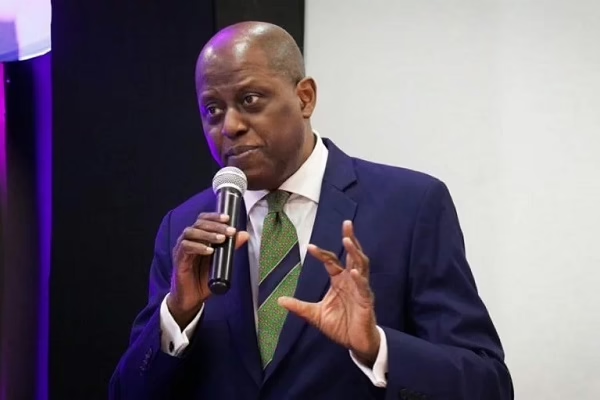Olayemi Cardoso’s name means “one worthy of honor,” and true to this meaning, he has earned his reputation through relentless dedication. Since his appointment as the Governor of Nigeria’s Central Bank in September 2023, Cardoso has confronted seemingly insurmountable economic challenges with remarkable resolve. At the time he took office, Nigeria was grappling with soaring inflation, a volatile exchange rate, and dwindling productivity. The Nigerian Naira was uniquely troubled, plagued by multiple exchange rates-the official Central Bank rate, the black-market rate, the money transfer rate, and the autonomous market rate-making it one of the most unstable currencies globally, even worse than the Iranian rial under sanctions.
The strain on Nigeria’s foreign exchange reserves was intense and confusing. Official figures from the Central Bank in August 2023 reported reserves at $33.8 billion, but after accounting for securities arrangements, J.P. Morgan estimated the actual figure closer to $3.7 billion. The financial sector was equally chaotic, with some banks prioritizing profit over economic support. These institutions exploited the fragmented forex market by engaging in round-tripping-purchasing foreign currency at the official rate and reselling it on the black market for huge gains-effectively profiting at the nation’s expense. At one point, certain banks held more foreign currency assets than Naira-denominated ones, highlighting the systemic imbalance.
Beyond the economic turmoil, the Central Bank itself was in dire need of reform. Cardoso inherited an institution that was inefficient and poorly managed. He initiated a comprehensive overhaul, removing ineffective personnel and appointing skilled professionals to key positions. While this restructuring might appear straightforward on paper, it sparked controversy in Nigeria’s ethnically diverse society, with accusations of ethnic bias leveled against him.
With a revitalized Central Bank, Cardoso tackled the country’s economic woes head-on. His initial priority was to restore confidence in the Naira by eliminating the multiple exchange rate system and allowing the currency to float freely, enabling market forces to determine its true value. Although this led to a sharp depreciation-from around N700 to nearly N2,000 per dollar at one point-it immediately halted currency arbitrage and speculative trading. Additionally, Cardoso cleared $6.7 billion in outstanding foreign exchange debts, a move that had tangible benefits such as reduced airline ticket prices and the restoration of impaired credit lines for Nigerian banks.
Subsequently, increased foreign capital inflows enhanced liquidity in the forex market. By August 2025, the Naira stabilized at approximately N1,492 to the dollar. Cardoso’s success is not merely reflected in the exchange rate itself but in the newfound stability, with fluctuations contained within a 10 percent range over the past year-a level of steadiness not seen since the Abacha era, when the currency remained stable for nearly three years. This predictability has empowered businesses to plan confidently, as the Naira has regained its role as a reliable store of value.
Transparency has been a cornerstone of Cardoso’s reforms. The era of privileged individuals profiting from forex allocations without contributing to the economy has ended. While banks adapted smoothly to the new regulations, Cardoso imposed stringent controls on bureau de change operators to curb speculative practices and foster a healthier currency market.
Two years into his tenure, Cardoso has not only stabilized the foreign exchange market but also rebuilt Nigeria’s external reserves to $41.05 billion as of August 2025, with an ambitious goal of reaching $100 billion. These reforms have inadvertently benefited government finances as well, providing sufficient liquidity to clear salary arrears across federal, state, and local levels. Since oil revenues are credited to the federation account at prevailing exchange rates, governments have enjoyed increased Naira inflows. However, these measures have also diminished the purchasing power of ordinary Nigerians-a painful but necessary adjustment given the previous years of economic mismanagement. In this sense, Cardoso’s approach resembles a skilled surgeon removing a gangrenous limb: the process is painful but essential for survival.
Cardoso’s commitment to reform extended to the financial system’s governance. He enforced a zero-tolerance policy on misconduct within banks and introduced higher capital requirements to shield institutions from economic shocks and systemic risks.
Attention to detail was evident in his focus on customer rights. The Central Bank has transformed how banks handle complaints, ending the era of dismissive treatment. Between October 2023 and September 2024, the CBN resolved 76.58 percent of nearly 20,000 customer grievances, facilitating refunds totaling over N7 billion and $714,569. In a country where consumers have historically lacked protections, this represents a significant advancement.
Inflation has also shown signs of easing, dropping from 28.92 percent in December 2023 to 20.12 percent recently, reflecting the positive impact of Cardoso’s policies.
Moreover, Cardoso has leveraged the Nigerian diaspora’s potential by integrating overseas Nigerians into the domestic financial system. They can now open non-resident accounts and obtain Bank Verification Numbers (BVNs) through seamless online platforms, enhancing financial inclusion.
His quiet yet impactful leadership earned him the Central Bank of the Year Award at the African Bankers Awards, a testament to his transformative work. In just two years, Olayemi Cardoso has truly lived up to his name, proving himself a leader worthy of honor.



















